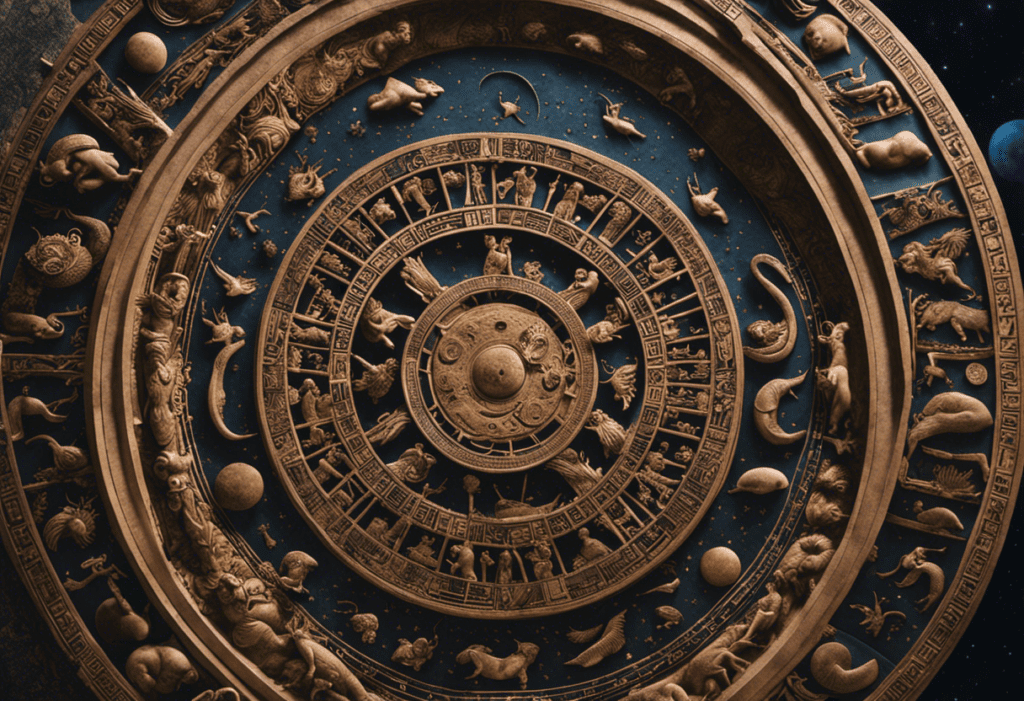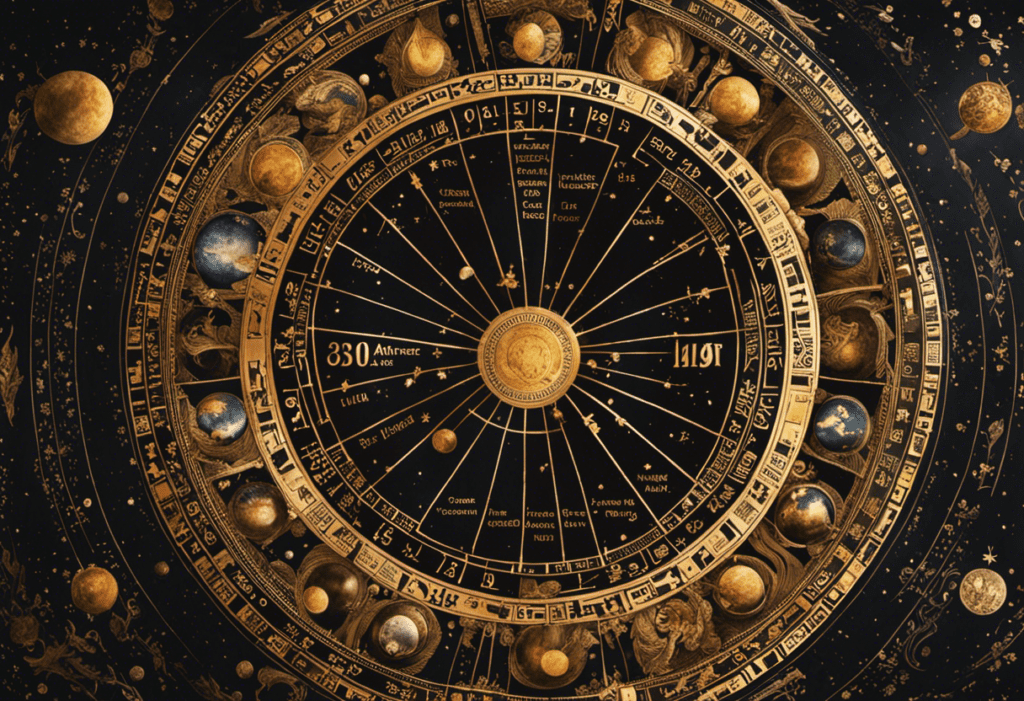Prepare to be amazed as we delve into the enchanting world of the ancient Greek calendar.
Uncover 7 captivating facts that will challenge your understanding of timekeeping in the ancient world.
From lunar-based calculations to the profound influence of the gods, this article presents an impartial and evidence-based analysis of a calendar system shrouded in mystery.
Brace yourself for a journey through time, as we unravel the secrets behind the Greek calendar’s fascinating origins and enduring impact on modern timekeeping.
Key Takeaways
- The Greek calendar was lunar-based and consisted of 12 months that corresponded to specific moon phases.
- The calendar played a significant role in religious events, festivals, and agricultural planning.
- Festivals dedicated to specific gods were held throughout the year, and celestial events were used for divination and prophecy.
- Intercalary months were inserted to reconcile lunar and solar calendars and maintain a balance between human activities and nature.
The Ancient Greek Calendar Was Lunar-Based


The lunar-based nature of the Ancient Greek calendar was a key factor in their cultural and religious practices. The Greeks followed a lunar calendar, which means that their months were based on the cycles of the moon. This lunar calendar consisted of 12 months, with each month corresponding to a specific phase of the moon. The Greeks believed that the moon had a significant influence on their daily lives, and they incorporated this belief into their calendar system.
The Greek lunar cycles played a crucial role in determining the timing of various festivals and religious events. The Greeks celebrated numerous festivals throughout the year, and these festivals were often tied to specific lunar phases. For example, the festival of Thesmophoria, dedicated to the goddess Demeter, was celebrated during the time of the full moon in October. Similarly, the festival of Apollo, known as the Pythian Games, took place every four years during the full moon in July.
By aligning their festivals with the lunar cycles, the Greeks believed that they were honoring the gods and ensuring their favor. Furthermore, the lunar-based calendar also helped the Greeks in agricultural planning, as they could time their planting and harvesting activities based on the phases of the moon.
The Influence of the Gods on the Greek Calendar
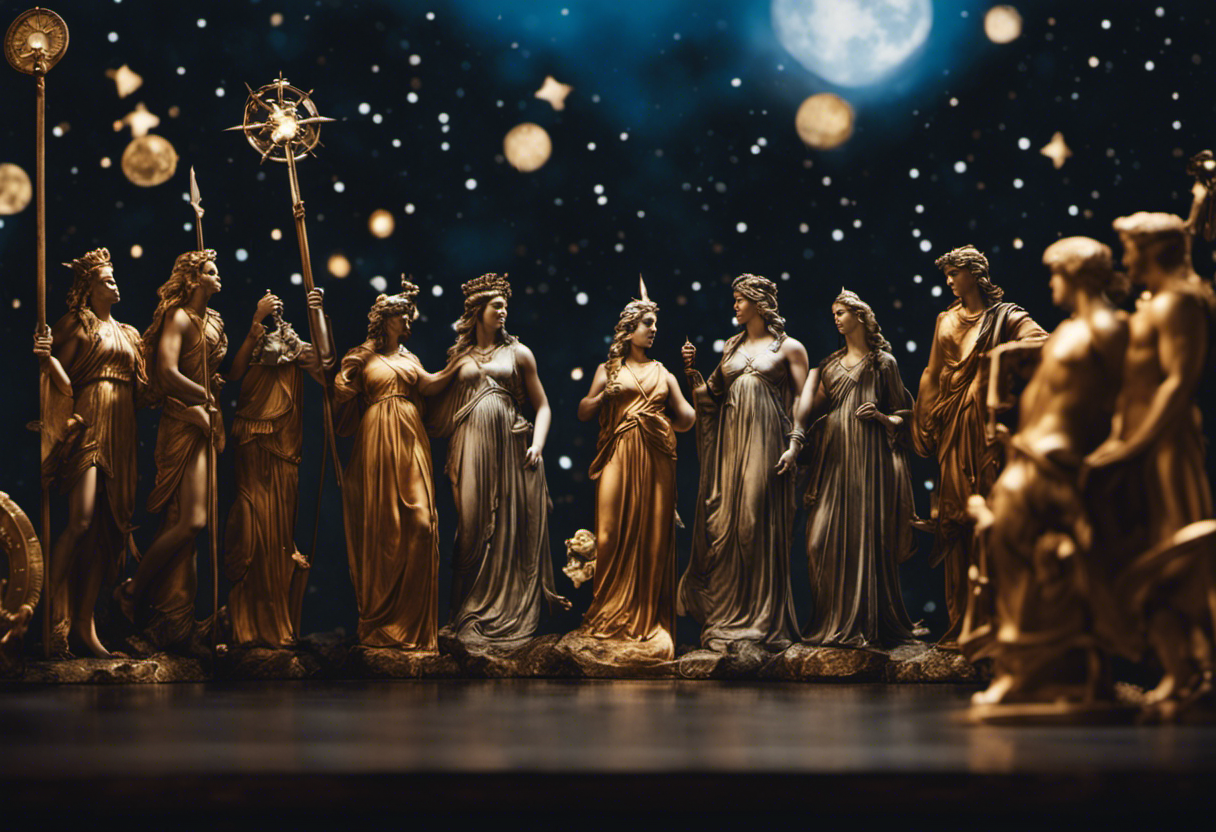

Throughout the year, as the Ancient Greeks followed their lunar-based calendar, the gods played a significant role in shaping the timing and observance of various festivals and religious events.
The influence of the gods on the Greek calendar can be seen in the following ways:
- Festivals dedicated to specific gods: The Greek calendar was filled with festivals and celebrations dedicated to different gods and goddesses. These festivals were held at specific times of the year, often aligning with important agricultural or natural events. For example, the festival of Dionysus, the god of wine and fertility, was celebrated in the spring during the grape harvest.
- Religious rituals tied to celestial events: The Greeks believed that the movements of the celestial bodies were influenced by the gods. As such, certain religious rituals were performed during celestial events such as lunar eclipses or the solstices. These rituals were believed to honor the gods and ensure their continued favor.
- Divination and prophecy: The Greeks also used the calendar to determine auspicious dates for divination and prophecy. They believed that certain days were more receptive to communication with the gods, and thus, important decisions or inquiries were made on these specific dates.
The influence of the gods on the Greek calendar was not only a religious matter but also deeply ingrained in the cultural and social fabric of ancient Greek society. The festivals and celebrations served as occasions for communal gatherings, artistic performances, and the reinforcement of shared beliefs and values.
The Greek Calendar Had 12 Months


With its lunar-based system, the ancient Greek calendar consisted of 12 months, each playing a crucial role in tracking the passage of time and organizing various religious and cultural events. The Greek calendar was closely tied to the lunar cycles, which influenced the timing of festivals and religious observances. The months were named after significant agricultural activities and religious traditions.
The first month of the Greek calendar was Hekatombaion, which roughly corresponded to July and August. It marked the beginning of the agricultural year, when farmers would harvest wheat and barley. The following months, Metageitnion and Boedromion, were associated with vine harvesting and the gathering of fruits, respectively.
Other months, such as Pyanepsion and Gamelion, were named after religious rituals. Pyanepsion was dedicated to Apollo, while Gamelion was associated with the sacred marriage of Zeus and Hera. These months were marked by feasts, processions, and religious ceremonies.
The Greek calendar’s connection to agricultural activities was crucial for the ancient Greeks. It helped them plan their farming activities, such as sowing and harvesting, based on the seasonal changes. Additionally, the calendar provided a framework for organizing religious events, ensuring that important rituals were conducted at the appropriate times.
The Greek Calendar Had Intercalary Months
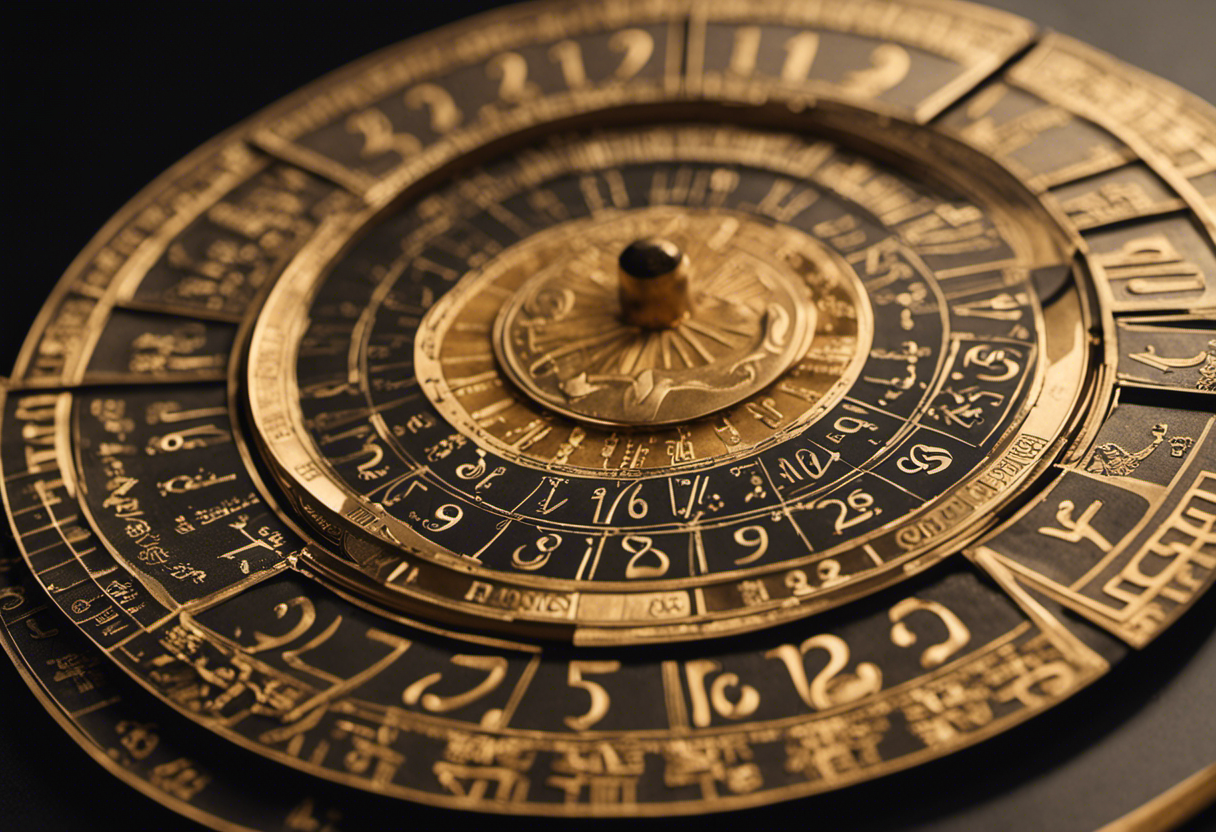

Intercalary months, known as ‘epagomenal’ months, were an important feature of the ancient Greek calendar. These additional months were inserted periodically to reconcile the lunar calendar with the solar year, ensuring that religious festivals and agricultural activities aligned with the correct seasons.
Here are three key points about the significance of intercalary months in the Greek calendar:
- Religious Festivals: The Greek calendar was closely tied to religious festivals, which played a crucial role in ancient Greek society. Intercalary months were used to adjust the calendar so that religious events, such as the Olympics or the Panathenaic Festival, fell in the appropriate time of the year. This ensured that the rituals and ceremonies associated with these festivals took place during their designated seasons.
- Agricultural Planning: Agriculture was the backbone of the ancient Greek economy, and farmers relied on the calendar to determine the optimal timing for planting, harvesting, and other agricultural activities. Intercalary months helped farmers adjust their planting schedules to account for variations in the seasons and climate, ensuring that their crops grew under favorable conditions.
- Harmony with Nature: The inclusion of intercalary months in the Greek calendar reflected the ancient Greeks’ understanding of the cyclical nature of time and their desire to harmonize human activities with the natural world. By incorporating these additional months, they sought to maintain a balance between the lunar and solar cycles, aligning their religious and agricultural practices with the rhythms of nature.
Ancient Greeks Used Different Names for the Months
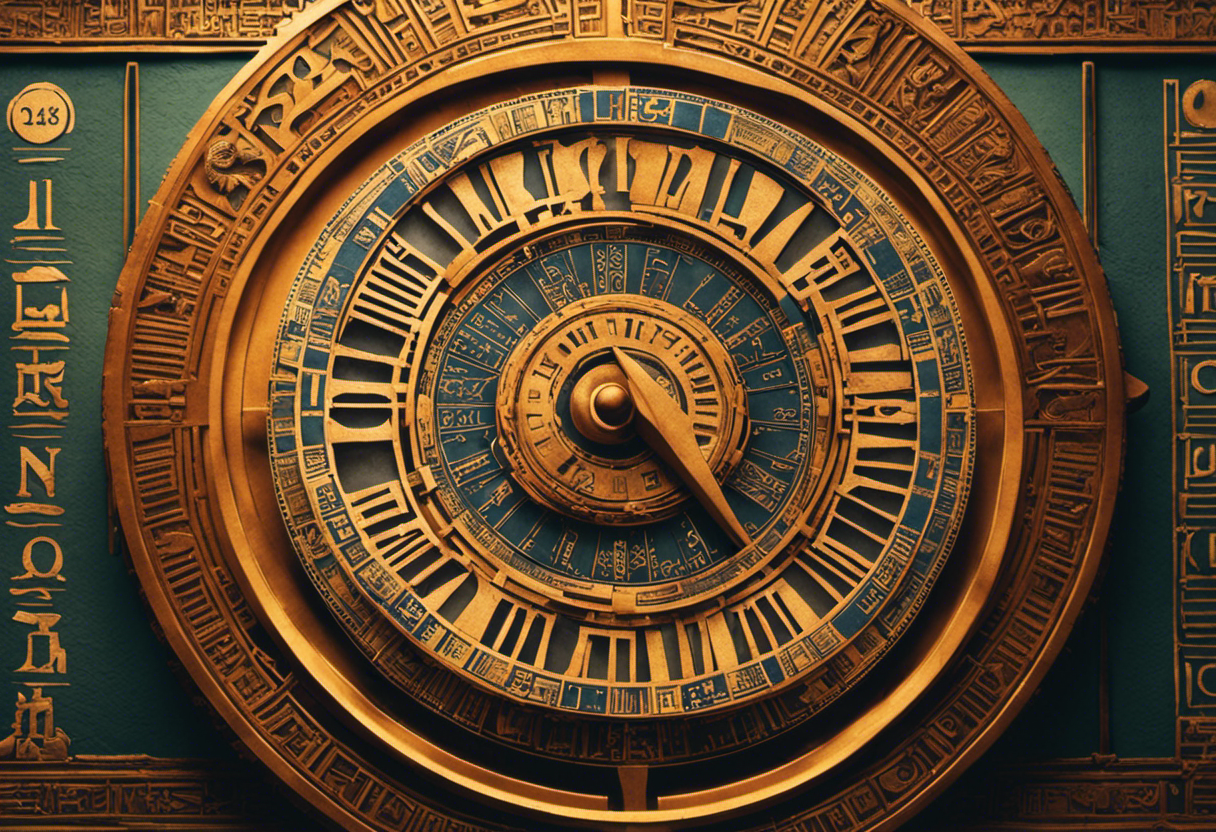

How did the ancient Greeks differentiate the months from one another, and what names did they use?
The ancient Greeks had a unique way of naming their months, which differed from the modern calendar system. Unlike the standardized names we use today, the ancient Greeks used different names for each month based on various factors such as religious festivals, agricultural activities, or even mythological events.
The ancient Greek month names varied across different city-states and regions, but there were some common trends. For example, some months were named after gods and goddesses. The first month of the year was called Hekatombaion, named after Hekate, the goddess of magic and witchcraft. Other months included names like Poseideon (dedicated to Poseidon, the god of the sea), Artemisios (dedicated to Artemis, the goddess of hunting), and Panemos (dedicated to Pan, the god of nature).
Additionally, some months were named after agricultural activities. For instance, the month of Mounichion was named after the verb ‘mounichomai,’ which means ‘to close the eyes,’ symbolizing the time when farmers would plant their crops and close their eyes in hope for a good harvest.
The Beginnings of the Greek Calendar
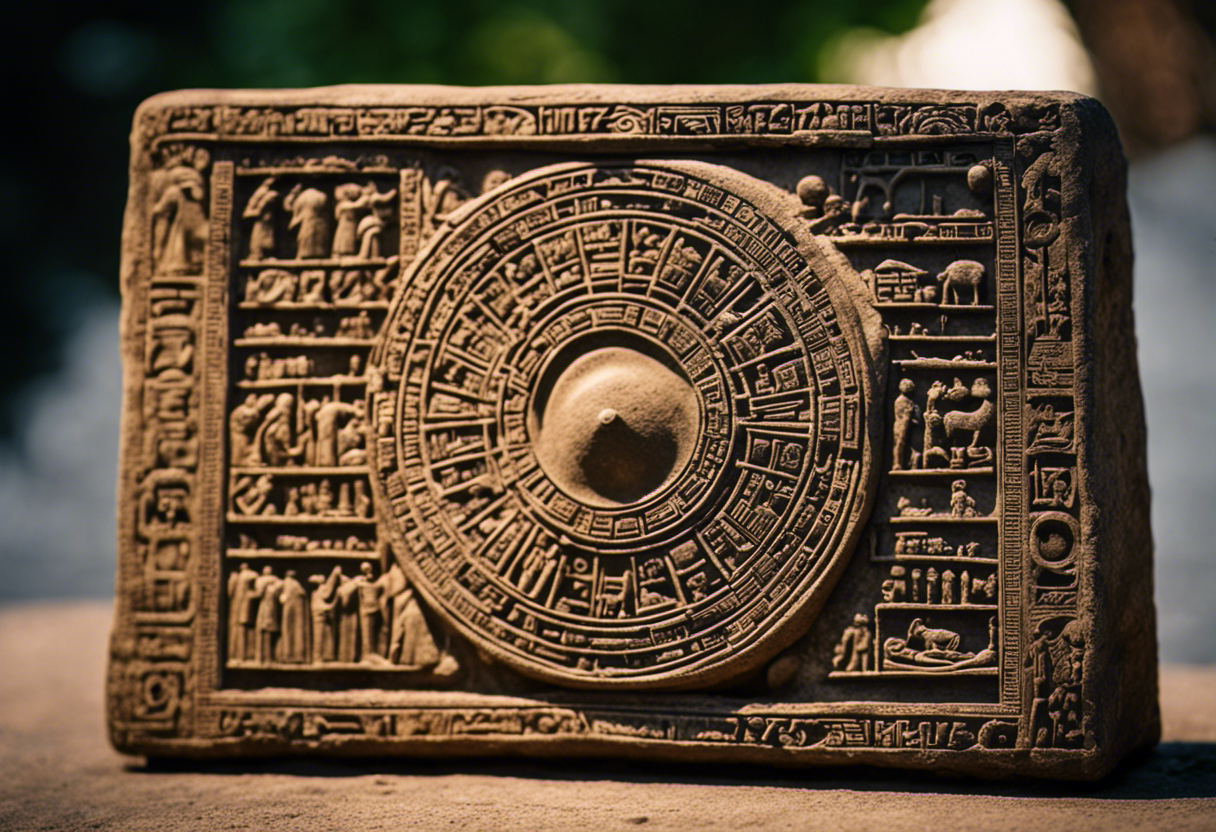

The beginnings of the Greek calendar can be traced back to the early development of calendars in ancient civilizations. The Greek calendar originated from the solar and lunar cycles, and it went through various changes and adaptations over time.
Understanding the origin and early development of the Greek calendar provides valuable insights into the cultural and astronomical influences that shaped the way the ancient Greeks organized and measured time.
Origin of Greek Calendar
The ancient Greek calendar, dating back to the 8th century BCE, has its origins in the astronomical observations and agricultural practices of the early Greek civilization. The Greeks believed that their calendar was divinely inspired and held great cultural significance. Here are three origin theories surrounding the Greek calendar:
- Lunar Origin: Some scholars believe that the Greek calendar was originally based on the lunar cycle, with each month corresponding to a lunar phase. This theory is supported by the fact that the word ‘month’ in Greek, ‘men’, is derived from the word for ‘moon’, ‘mene’.
- Solar Origin: Others argue that the Greek calendar was primarily based on the solar year, with the months aligning with the agricultural seasons. This theory is supported by the agricultural festivals and rituals that were an integral part of the Greek calendar.
- Babylonian Influence: There is also evidence to suggest that the Greek calendar was influenced by the Babylonian calendar. The Greeks were known to have had contact with the Babylonians, and it is possible that they adopted some of their calendar practices.
Understanding the origins of the Greek calendar provides valuable insights into the cultural and religious practices of the ancient Greeks.
Early Calendar Development
Early Greek astronomers and mathematicians, through their observations and calculations, developed a calendar system that marked the beginning of the Greek calendar. The development of the Greek calendar can be traced back to the early solar calendars used in ancient Greece. These early solar calendars were based on the movements of the sun, with the year divided into twelve lunar months.
However, due to the misalignment between the solar year and the lunar month, the early Greek astronomers and mathematicians had to devise new timekeeping methods to better synchronize the calendar with the solar year. This led to the development of the Metonic cycle, a 19-year cycle that incorporated intercalary months to align the lunar and solar calendars.
These early calendar development efforts laid the foundation for the Greek calendar system that would be used for centuries to come.
The Greek Calendar’s Impact on Modern Timekeeping


Revolutionizing the way we measure time, the ancient Greek calendar has left an indelible mark on modern timekeeping systems. Here are three ways in which the Greek calendar has impacted our understanding and measurement of time:
- Connection to Astrology: The Greek calendar was closely intertwined with astrology, the belief that celestial bodies and their movements have a significant influence on human affairs. Each month in the Greek calendar was named after a specific deity or constellation, reflecting the belief that these celestial entities played a role in the events of that month. This connection between time and celestial bodies laid the foundation for the integration of astrology into modern calendars.
- Historical Significance in Ancient Greece: The Greek calendar played a crucial role in the daily lives of ancient Greeks. It was used to schedule religious festivals, agricultural activities, and political events. The calendar’s structure, which included a combination of lunar and solar elements, allowed for the synchronization of religious and agricultural activities with natural cycles. This synchronization ensured harmony between human activities and the natural world, a concept that continues to influence modern timekeeping practices.
- Legacy in Modern Timekeeping: The Greek calendar introduced the concept of dividing time into months, weeks, and days, which is still widely used in modern calendars. Furthermore, the Greek calendar’s influence can be seen in the names of the days of the week, which are derived from the names of ancient Greek deities. This enduring legacy highlights the lasting impact of the Greek calendar on our modern understanding and measurement of time.
Conclusion
In conclusion, the ancient Greek calendar was a lunar-based system that revolved around the influence of the gods.
It consisted of 12 months, with intercalary months added to align with the solar year.
The Greeks used different names for each month and the calendar’s origins can be traced back to the early civilizations of Mesopotamia.
The Greek calendar had a significant impact on modern timekeeping, shaping the way we organize and measure the passage of time today.

